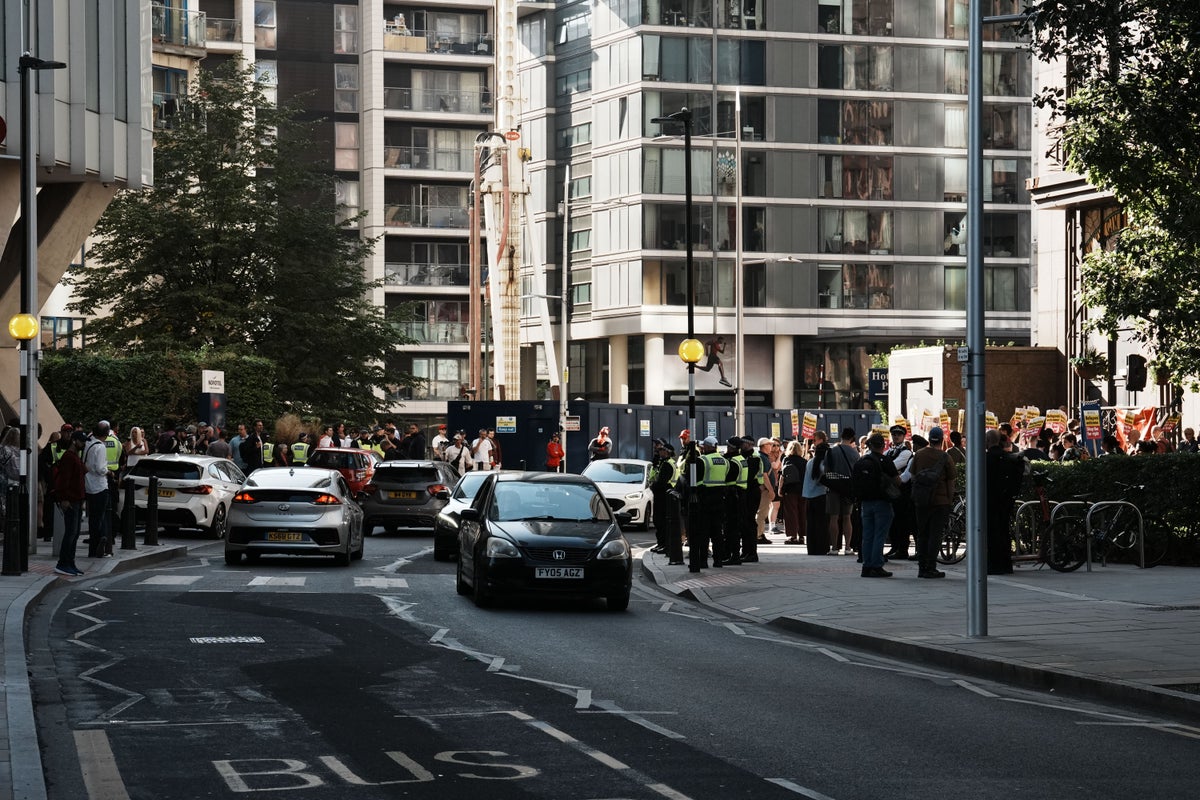
The number of asylum seekers being housed temporarily in UK hotels has risen by 8% under Labour on the same point last year, according to newly published data.
The figures come just days after a court ruled that more than 100 asylum seekers currently staying at a hotel in Essex should be removed from the accommodation after a council brought a legal case.
The High Court judgment has led to ministers bracing for further legal challenges from councils across the country and pressure on the Government as to where else they can house asylum seekers.
The latest Home Office data, published on Thursday as part of the usual quarterly immigration statistics, cover Labour’s first year in office.
They show there were 32,059 asylum seekers in UK hotels by the end of June.
This was up from 29,585 at the same point a year earlier, when the Conservatives were still in power but down slightly on the 32,345 figure at the end of March.
The latest number is still below the peak of 56,042 asylum seekers in hotels at the end of September 2023 under the Tories.
Figures for hotels published by the Home Office on Thursday date back to December 2022.
The latest pressure on Labour over hotel figures comes as the Government is also grappling with record numbers of people crossing the Channel.
Thursday’s figures show migrants who arrived in the UK having made the dangerous crossing accounted for 39% of the total number of people claiming asylum in the year to June.
Nearly 28,000 people have arrived in the UK in 2025 so far after crossing the English Channel, a record for this point in the year since data collection began in 2018.
Meanwhile, other data published on Thursday showed Government spending on asylum in the UK is down 12%.
The total – which covers Home Office costs related to asylum, including direct cash support and accommodation such as hotels but not costs relating to intercepting migrants crossing the English Channel – stood at £4.76 billion in 2024/25, down from from a record £5.38 billion in 2023/24.
Asylum seekers and their families can be housed in temporary accommodation, known as contingency accommodation, if they are awaiting assessment of their claim or have had a claim approved and there is not enough longer-term accommodation available.
When there is not enough housing, the Home Office – which has a legal obligation to provide accommodation to asylum seekers who would otherwise be destitute – can move people to alternatives such as hotels and large sites, like former military bases.
On Tuesday, a judge at the High Court granted Epping Forest District Council a temporary injunction, blocking asylum seekers from being housed at the Bell Hotel in Epping, Essex.
Several protests and counter-protests have been held in the town since a then-resident at the hotel was accused of trying to kiss a teenage girl – charges he denies and which he is due to stand trial for later this month.
The council said it had sought the injunction because of “unprecedented levels of protest and disruption” in connection with asylum seeker accommodation.
Demonstrations have been held outside other hotels including the Britannia International Hotel in London’s Canary Wharf.
Labour has pledged to end the use of hotels to house asylum seekers by the end of this parliament – which would be 2029, if not earlier.
Campaigners including Rape Crisis and Refuge have warned conversations about violence against women and girls are being “hijacked by an anti-migrant agenda” which they argued fuels divisions and harms survivors.
More than 100 women’s organisations have written to ministers to say they “have been alarmed in recent weeks by an increase in unfounded claims made by people in power, and repeated in the media, that hold particular groups as primarily responsible for sexual violence”.
They added: “This not only undermines genuine concerns about women’s safety, but also reinforces the damaging myth that the greatest risk of gender-based violence comes from strangers.”
